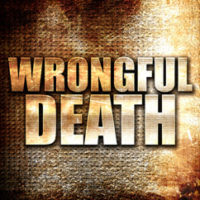4 Features of Wrongful Death Actions in Maryland

Wrongful death is a legal cause of action available under the umbrella of personal injury law. In essential terms, wrongful death actions are available to the surviving family members of a deceased person. If a wrongdoer caused the fatality in question, then the surviving family members may be able to file a lawsuit and secure financial compensation.
In order to better understand the nuances of this type of legal action, the sections below will examine four features of wrongful death under Maryland law.
- A Wrongful Act Must Cause a Person’s Death
The definition of a wrongful act appears in Maryland Code of Courts & Judicial Proceedings Section 3-901. This term refers to any act, default, or neglect — including felony crimes — that would normally allow the victim to file a lawsuit or pursue similar legal action. But as the victim died, they are unable to do so on their own behalf.
Accordingly, when a person dies due to a wrongful act, Maryland Code of Courts & Judicial Proceedings Section 3-902 authorizes that person’s surviving family member to file a legal cause of action against the wrongdoer.
- Only Certain Family Members Can File a Wrongful Death Action
Under Maryland Code of Courts & Judicial Proceedings Section 3-904, only certain surviving family members are allowed to file a wrongful death action. Precisely, wrongful death actions are restricted to a deceased person’s:
- Spouse;
- Minor child (under 18 years old);
- Co-parent of a minor child;
- Unmarried child (under 21 years old); or
- Dependent and unmarried child of any age.
- Family Members Generally Have Three Years to File a Wrongful Death Action
Under Section 3-904, a deceased person’s surviving family members generally have a three-year limit to file a wrongful death action. This is normally a strict limit. If the surviving family members do not file within three years, then they will likely lose the ability to pursue a wrongful death action.
That being said, there are several exceptions to this statute of limitations. One such exception involves an occupational disease that leads to a person’s death. In that case, the surviving family members can file a wrongful death within:
- 10 years of the person’s death; or
- 3 years from discovery of the cause of death.
- The Maryland Courts Can Try Wrongful Acts from Other Places
Under Maryland Code of Courts & Judicial Proceedings Section 3-903, the Maryland courts are allowed to hear certain cases involving wrongful acts from other places. Specifically, Section 3-903 includes wrongful acts that caused a death in:
- The District of Columbia;
- Any U.S. state; and
- Any U.S. territory.
In these situations, the Maryland courts must apply applicable laws in the jurisdiction where the wrongful act occurred.
Do You Need Legal Help?
If you have legal questions about wrongful death actions in Maryland, it can be extremely beneficial to contact a knowledgeable Baltimore wrongful death lawyer. Based in Baltimore, Maryland, the lawyers at Iamele & Iamele, LLP feature proven knowledge and skill in the field of personal injury law, including wrongful death actions. If you need legal help, contact us today for a free initial consultation.

